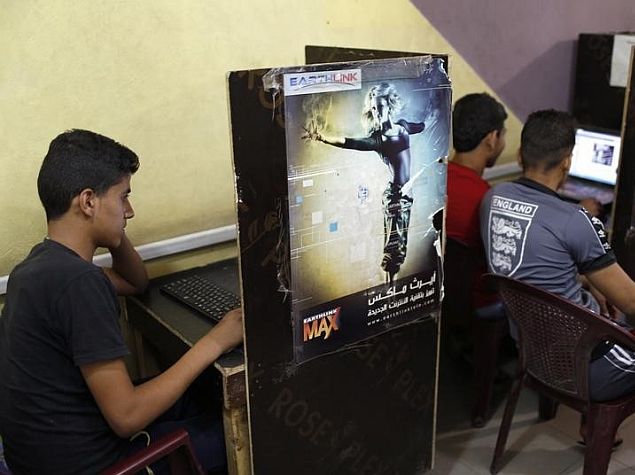- Home
- Internet
- Internet News
- Country Web Domains Cannot Be Seized: ICAAN
Country Web Domains Cannot Be Seized: ICAAN

The Internet Corporation for Assigned Names and Numbers said it filed its argument in response to lawsuits by victims of acts of terror who were seeking to seize the Web domains of Iran, Syria and North Korea to collect on civil damage judgments potentially shutting down Internet access in the countries.
The response was to petitions filed by victims of terror and family members of those who have been injured or killed in attacks believed to be sponsored by the countries, and are seeking to seize the so-called "country code top level domains," such as .ir for Iran, .sy for Syria and .kp for North Korea.
ICANN general counsel John Jeffrey said in a statement that these domains are not assets which can be seized but "part of a single, global interoperable Internet which ICANN serves to help maintain."
He added that these domains "are not property, and are not 'owned' or 'possessed' by anyone including ICANN, and therefore cannot be seized in a lawsuit."
ICANN filed its response Tuesday in federal court after being served with orders to recover assets from those three countries from plaintiffs who won lawsuits against Iran, Syria and North Korea.
If the recovery efforts succeed, they could allow the victims to take over the domains and potentially shut down all Internet access in the three countries.
Last month, lawyers for one group of plaintiffs including American citizens or families of those killed or injured in attacks on Israel by Hamas, believed to be sponsored by Tehran announced they had won a judgment against Iran and were asking for the domains.
It was "the first time that terror victims have moved to seize the domain names, IPs and Internet licenses of terrorism-sponsoring states like Iran," attorney Nitsana Darshan-Leitner said at the time.
But ICANN's court filings argued that seizing the domains was not the correct legal remedy.
The filing said the top-level domains for each country are "not 'property' subject to attachment" and "are not 'owned' by the defendants or anyone else, for that matter."
ICANN argued that even if the domains were considered property and could be handed over, a ruling for the plaintiffs "would destroy whatever value may exist" in the domains and "would wipe out the hundreds of thousands of second-level domain names registered therein by various individuals, businesses and charitable organizations, and could jeopardize the single, global, interoperable structure the Internet."
Court papers filed June 24 in federal court in Washington asked for ICANN to hand over assets in cases against Iran and Syria after the countries refused to pay damages in lawsuits.
For the latest tech news and reviews, follow Gadgets 360 on X, Facebook, WhatsApp, Threads and Google News. For the latest videos on gadgets and tech, subscribe to our YouTube channel. If you want to know everything about top influencers, follow our in-house Who'sThat360 on Instagram and YouTube.
Related Stories
- Samsung Galaxy Unpacked 2025
- ChatGPT
- Redmi Note 14 Pro+
- iPhone 16
- Apple Vision Pro
- Oneplus 12
- OnePlus Nord CE 3 Lite 5G
- iPhone 13
- Xiaomi 14 Pro
- Oppo Find N3
- Tecno Spark Go (2023)
- Realme V30
- Best Phones Under 25000
- Samsung Galaxy S24 Series
- Cryptocurrency
- iQoo 12
- Samsung Galaxy S24 Ultra
- Giottus
- Samsung Galaxy Z Flip 5
- Apple 'Scary Fast'
- Housefull 5
- GoPro Hero 12 Black Review
- Invincible Season 2
- JioGlass
- HD Ready TV
- Laptop Under 50000
- Smartwatch Under 10000
- Latest Mobile Phones
- Compare Phones
- Moto G15 Power
- Moto G15
- Realme 14x 5G
- Poco M7 Pro 5G
- Poco C75 5G
- Vivo Y300 (China)
- HMD Arc
- Lava Blaze Duo 5G
- Asus Zenbook S 14
- MacBook Pro 16-inch (M4 Max, 2024)
- Honor Pad V9
- Tecno Megapad 11
- Redmi Watch 5
- Huawei Watch Ultimate Design
- Sony 65 Inches Ultra HD (4K) LED Smart TV (KD-65X74L)
- TCL 55 Inches Ultra HD (4K) LED Smart TV (55C61B)
- Sony PlayStation 5 Pro
- Sony PlayStation 5 Slim Digital Edition
- Blue Star 1.5 Ton 3 Star Inverter Split AC (IC318DNUHC)
- Blue Star 1.5 Ton 3 Star Inverter Split AC (IA318VKU)

















